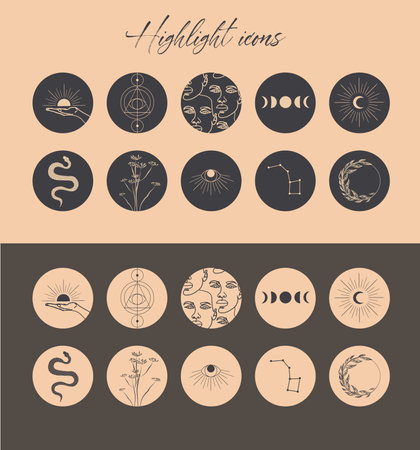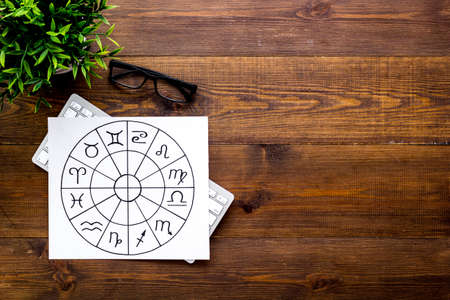Introduction: Astrology’s Role in Contemporary British Life
Astrology, with its roots tracing back centuries across Europe and the British Isles, continues to exert a notable influence on the daily lives and cultural identity of people in the UK. Despite a modern society that values rationality and scientific discourse, horoscopes remain a regular feature in newspapers, magazines, and online platforms throughout Britain. This ongoing fascination is not merely a relic of superstition; rather, it reflects deeper currents within British culture—where tradition, curiosity, and a search for meaning often intersect. The popularity of astrology in contemporary Britain invites us to examine how these beliefs are woven into the fabric of regional identities, shaping perspectives on fate, character, and even community belonging. By exploring the nuances of astrological practice across different parts of the UK, we can better understand how such traditions contribute to a uniquely British sense of self in an era marked by both continuity and change.
Historical Roots: Astrology in British Folklore and Tradition
The relationship between astrology and British identity is deeply entwined with the nations folklore and traditions, stretching back centuries. To understand regional variations in horoscopes across England, Scotland, Wales, and Northern Ireland, it is essential to examine how astrological beliefs have evolved within local historical contexts.
Astrology first arrived on British shores via the Romans, who imported their celestial systems during their occupation. Over the following centuries, astrological practices mingled with indigenous customs, giving rise to unique local interpretations. During the medieval period, astrology became intertwined with medical practice, royal court decisions, and even agricultural planning. The Elizabethan era saw a flourishing of astrological knowledge, with astrologers such as John Dee advising monarchs and influencing statecraft.
As Britain’s regions developed distinct identities, so too did their astrological traditions. In Scotland, for example, Celtic beliefs merged with planetary symbolism, leading to a syncretic system where lunar cycles and ancestral spirits played a role in horoscope readings. In contrast, English astrology was more heavily influenced by classical learning and urban intellectual circles.
The table below outlines key historical influences on astrology in each nation:
| Nation | Key Historical Influence | Astrological Practice |
|---|---|---|
| England | Roman classical tradition; Elizabethan court astrology | Zodiac-based horoscopes; almanacs for agriculture |
| Scotland | Celtic folklore; Highland mysticism | Lunar cycles; ancestral spirit guidance |
| Wales | Druidic customs; bardic storytelling | Seasonal omens; poetic interpretation of stars |
| Northern Ireland | Gaelic mythology; monastic scholarship | Solar festivals; integration with Christian calendar |
This historical tapestry continues to shape how modern Britons interpret their horoscopes. The persistence of regional folklore means that astrological advice in the UK often carries echoes of ancient wisdom—whether it is a Yorkshire farmer consulting an almanac or a Welsh poet inspired by celestial cycles. Thus, astrology remains not only a personal tool but also a cultural thread woven through the diverse fabric of British identity.

3. Regional Differences: Horoscopes from Brighton to Belfast
Astrology in the United Kingdom is far from a monolithic practice; rather, it is shaped by distinct regional cultures and traditions. When we examine horoscopes across England, Scotland, Wales, and Northern Ireland, clear differences emerge in both interpretation and social reception. These variations are rooted in each nation’s unique history, sense of identity, and relationship with spirituality.
England: Individualism and Modern Adaptation
In England—particularly in cosmopolitan areas like London or Brighton—astrology often intersects with contemporary wellness culture. English interpretations of horoscopes tend to emphasise individualism, self-improvement, and personal destiny. The language used in English horoscopes frequently leans towards pragmatic advice and subtle humour, reflecting the cultural preference for understated wit. Astrology columns in national newspapers and online platforms commonly frame celestial influences as opportunities for self-reflection or personal growth.
Scotland: Tradition Meets Skepticism
Scottish attitudes towards astrology blend a respect for ancient traditions with a characteristic scepticism. In places such as Edinburgh or Glasgow, horoscopes may draw upon Celtic symbolism and folklore, integrating references to local myths or landscapes. However, there remains a strong undercurrent of rationalism—a legacy of the Scottish Enlightenment—that means astrology is often approached playfully or with a critical eye. Social gatherings might include light-hearted astrological discussions, but rarely does it take centre stage in decision-making.
Wales: Community and Ancestral Roots
Astrological practices in Wales are often intertwined with the nation’s deep connection to community and ancestry. Welsh horoscopes may highlight collective experiences or familial bonds over individual pursuits. Elements of Druidic heritage sometimes influence horoscope readings, infusing them with references to natural cycles and communal festivals. Local Welsh-language publications occasionally offer astrological content that resonates more strongly with rural traditions than urban trends.
Northern Ireland: Faith and Cautious Engagement
In Northern Ireland, where religious identity still plays a significant role in daily life, astrology occupies a more cautious space within popular culture. While interest exists—especially among younger generations—public expressions of astrological belief are less prominent compared to other regions. Horoscope interpretations here may be more reserved or even framed within moral considerations, reflecting broader societal values around faith and tradition.
Conclusion: A Patchwork of Perspectives
The regional variations in astrological practice across the UK illustrate how deeply embedded horoscopes are within local identities. From Brighton’s modern outlook to Belfast’s measured engagement, astrology serves not only as entertainment but as a subtle mirror reflecting the nuanced tapestry of British society.
4. Language and Local Culture: British Vernacular in Astrological Discourse
Astrology in the UK is not just a matter of planetary alignments; it is also deeply entwined with the nation’s distinctive linguistic landscape. The language used in horoscopes reflects both standard British English and a fascinating array of regional vernaculars, idioms, and cultural references. This interplay between astrology and local language not only personalises predictions but also enhances their relatability for readers across different parts of Britain.
The Role of Regional Dialects in Horoscope Writing
Astrological columns tailored for British audiences frequently incorporate regional dialects to resonate more strongly with local readers. For example, horoscopes published in Scotland may feature Scots words or turns of phrase, while those in Yorkshire might draw on local expressions to create a sense of familiarity. By embedding these linguistic nuances, astrologers foster a deeper connection with their audience, making predictions feel relevant and grounded in daily experience.
Idiomatic Expressions: Bridging Astrology and Everyday Life
British horoscopes often use idiomatic expressions that are regionally recognisable. These idioms do more than add colour—they link astrological advice to everyday situations. For instance, London-based horoscopes might use Cockney rhyming slang, while Welsh publications could include phrases unique to Welsh-English speakers. Such choices are not arbitrary; they are deliberate efforts to ensure astrological guidance feels authentic and accessible.
Examples of Regional Language Use in Horoscopes
| Region | Common Idioms/Expressions | Astrological Interpretation Example |
|---|---|---|
| London (Cockney) | “On the blower” (on the phone), “cheeky” (playful/mischievous) | “A cheeky conversation on the blower could open new doors today.” |
| Scotland | “Dinna fash” (don’t worry), “wee” (small/little) | “Dinna fash if plans change—a wee surprise is on its way.” |
| Northern England | “Nowt” (nothing), “graft” (hard work) | “Put in a bit o’ graft and you’ll get nowt but good results.” |
| Wales | “Cwtch” (hug/safe place), “tidy” (good/great) | “A tidy cwtch from a friend could lift your spirits.” |
| South West England | “Proper job” (well done), “lush” (very nice) | “It’s a proper job day for romance—things look lush.” |
The Impact on Horoscope Consumption
This infusion of regional language does more than entertain—it shapes how people engage with astrology. Readers are more likely to trust and internalise advice that speaks their linguistic ‘mother tongue’. As such, British horoscopes become a microcosm of national diversity, reflecting the mosaic of identities that characterise the UK. Whether through playful banter or comforting colloquialisms, the blending of astrology with local culture ensures that horoscopes remain meaningful within each unique British context.
5. Media Influence: Newspapers, Magazines, and Digital Platforms
The British media has long played a pivotal role in shaping public engagement with astrology, both reflecting and reinforcing regional nuances in astrological interpretation. From the golden age of print to today’s digital ecosystem, newspapers and magazines such as The Sun, The Daily Mail, and COSMOPOLITAN UK have integrated horoscopes into their daily or weekly offerings, making astrology a familiar part of British cultural life. These outlets often tailor content subtly to their readership: for instance, tabloids with a strong Northern circulation might feature horoscopes that reference local events, cultural touchstones, or regional attitudes towards fate and fortune. In contrast, lifestyle magazines targeting cosmopolitan audiences in London or the South East may frame astrological insights through the lens of career advancement or urban relationships. With the rise of digital platforms, regionalisation has become even more pronounced. Online horoscope columns hosted by major news websites frequently use geo-targeting or audience data analytics to adapt content for Scottish, Welsh, or Northern Irish readers—sometimes incorporating local dialects or referencing region-specific phenomena. Social media channels amplify this trend further by fostering communities around shared regional identity and astrological belief. The result is a dynamic feedback loop: media outlets popularise astrology while simultaneously adapting it to reflect—and reinforce—the distinct identities found within Britain’s diverse regions. Thus, the influence of British media is not merely in disseminating horoscopes but in actively curating them to resonate with the evolving tapestry of local cultures across the UK.
6. Critique and Acceptance: Scepticism versus Enthusiasm
The British relationship with astrology is far from monolithic, with regional variations reflecting the complex tapestry of national identity. Across the United Kingdom, attitudes towards horoscopes and astrological beliefs range from robust scepticism to genuine enthusiasm, often influenced by local culture, education, and historical context.
Critical Scepticism in Academic and Urban Centres
In England’s major cities such as London, Manchester, and Edinburgh, astrology frequently encounters a more critical eye. Here, the influence of prestigious universities and a tradition of empirical inquiry foster a climate where astrology is often dismissed as pseudoscience. Urban populations, shaped by diverse intellectual traditions and global perspectives, are likely to regard horoscopes as harmless entertainment rather than serious guidance. These regions embody the classic British scepticism—measured, witty, and unafraid to challenge popular trends.
Widespread Enthusiasm in Rural and Community-Oriented Regions
Conversely, certain areas—particularly rural communities in Wales, Scotland’s Highlands, and parts of Northern Ireland—display a remarkable openness to astrological practices. In these places, local identity remains deeply connected to folklore, oral history, and a sense of collective heritage. Astrology is often woven into community events or observed alongside traditional customs. The enthusiastic embrace of horoscopes here is not merely escapism but a means of reinforcing regional bonds and shared narratives.
Media Influence: Regional Press versus National Outlets
The media plays a pivotal role in shaping these attitudes. Local newspapers in Cornwall or Yorkshire might feature weekly horoscope columns that reflect community-specific concerns or humour—often penned in regionally distinctive English. In contrast, national broadsheets may approach the subject with irony or investigative distance, mirroring their urban readership’s scepticism.
The Balance of Belief: Negotiating Tradition and Modernity
This divergence highlights how astrology becomes a site for negotiating tradition and modernity within British society. While some regions hold fast to rationalist critiques rooted in Enlightenment thought, others find comfort and continuity in age-old celestial wisdom. This regional interplay between critique and acceptance demonstrates that the British sense of identity is constantly renegotiated—not just through politics or sport, but even through the stars themselves.
7. Conclusion: Astrology and the British Identity Landscape
Astrology, far from being a mere curiosity or passing fad, remains deeply woven into the fabric of British life, subtly reflecting and shaping identities across England, Scotland, Wales, and Northern Ireland. As we have systematically explored, regional nuances—shaped by history, language, class distinctions, and local traditions—are mirrored in both the content of horoscopes and the way astrological insights are interpreted by individuals. This dynamic relationship between astrology and British identity is not static; rather, it evolves alongside shifts in societal values, technological advancements, and changing attitudes towards spirituality.
The Enduring Appeal of Astrology
Despite widespread scepticism and the prevalence of scientific rationalism within British culture, astrology endures as a meaningful lens through which many people examine their personal journeys. The appeal lies in astrology’s ability to offer both collective narratives and highly personalised guidance, enabling Britons to locate themselves within a broader cosmological story while simultaneously affirming their unique traits rooted in regional heritage.
Regional Diversity as Identity Strength
The diversity seen in regional horoscopes highlights Britain’s multi-layered sense of self. Whether it’s the pragmatic humour found in Northern English readings, the poetic Celtic symbolism of Welsh forecasts, or the philosophical depth often observed in Scottish interpretations, these variations strengthen local identity while contributing to a richer national tapestry. Astrology thus becomes a symbolic arena where questions of belonging, tradition, and modernity intersect.
Astrology’s Role in Contemporary Britain
Today’s digital landscape has made astrology more accessible than ever before—social media memes, mobile apps, and online communities allow for both hyper-localised predictions and cross-regional dialogue. As Britons navigate complex issues of multiculturalism, devolution, and post-Brexit identity formation, astrology offers one pathway among many for self-understanding and social connection. It continues to act as a mirror for evolving identities and a tool for negotiating continuity amidst change.
In synthesising these insights, it is clear that astrology persists as both reflector and shaper within the British identity landscape. Its adaptability ensures relevance not only in private introspection but also within public conversations about what it means to be British today—rooted in locality yet open to new influences. As Britain continues to redefine itself on the world stage, astrology will likely remain an evocative part of its cultural toolkit.


